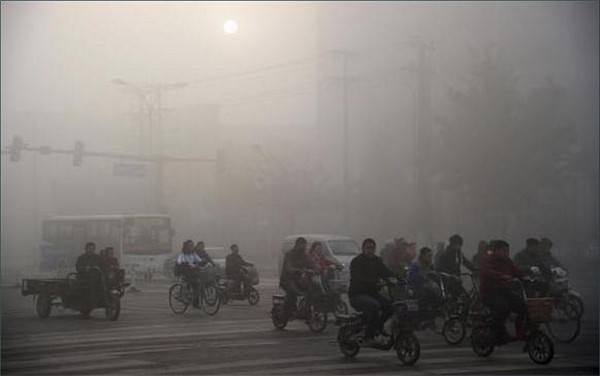Beijing is studying the feasibility of regularizing the implementation of the odd-even traffic policy that was in place during APEC to fight air pollution and ease the congestion in the city's streets, executive vice mayor Li Shixiang said in a forum held Wednesday.
"We have received much positive feedback on the odd-even license plate traffic restriction during the APEC meetings, suggesting that we make it a routine regulation, even on weekends, so we (the municipal government) will further discuss and hold hearings on the suggestion," Li was quoted saying by People's Daily.
From Nov. 3 to Nov. 12, private vehicles with odd and even license plate numbers were temporarily banned from plying the city's roads on alternate days, including weekends. During that period, Beijing witnessed rare blue skies, making "APEC blue" a popular phrase among the city's residents.
The restriction on private vehicles also worked well to reduce the traffic congestion in Beijing. During the period, the official index indicating the traffic situation showed that traffic flow was reduced by 70 percent instead of the estimated 50 percent, according to Zhou Zhengyu, head of the city's Commission of Transport.
Yang Chongyong, deputy governor of Hebei Province, told People's Daily that "air pollution control needs the joint efforts from Beijing as well as neighboring regions."
He pointed out that in order to reduce the flow of airborne pollutants from Beijing's neighbors during the APEC meetings, Hebei had to suspend work in 8,340 polluting companies and 5,825 construction sites. For a more lasting solution to the problem, he said that support from Beijing and Tianjin on air pollution control as well as in other ways through integrated regional development is necessary.
Xiao Jincheng, dean of the Institute of Spatial Planning & Regional Economy under the National Development and Reform Commission, told People's Daily that "the integrated development plan for Beijing, Tianjin and Hebei has been finished, and is in the process of review."



























